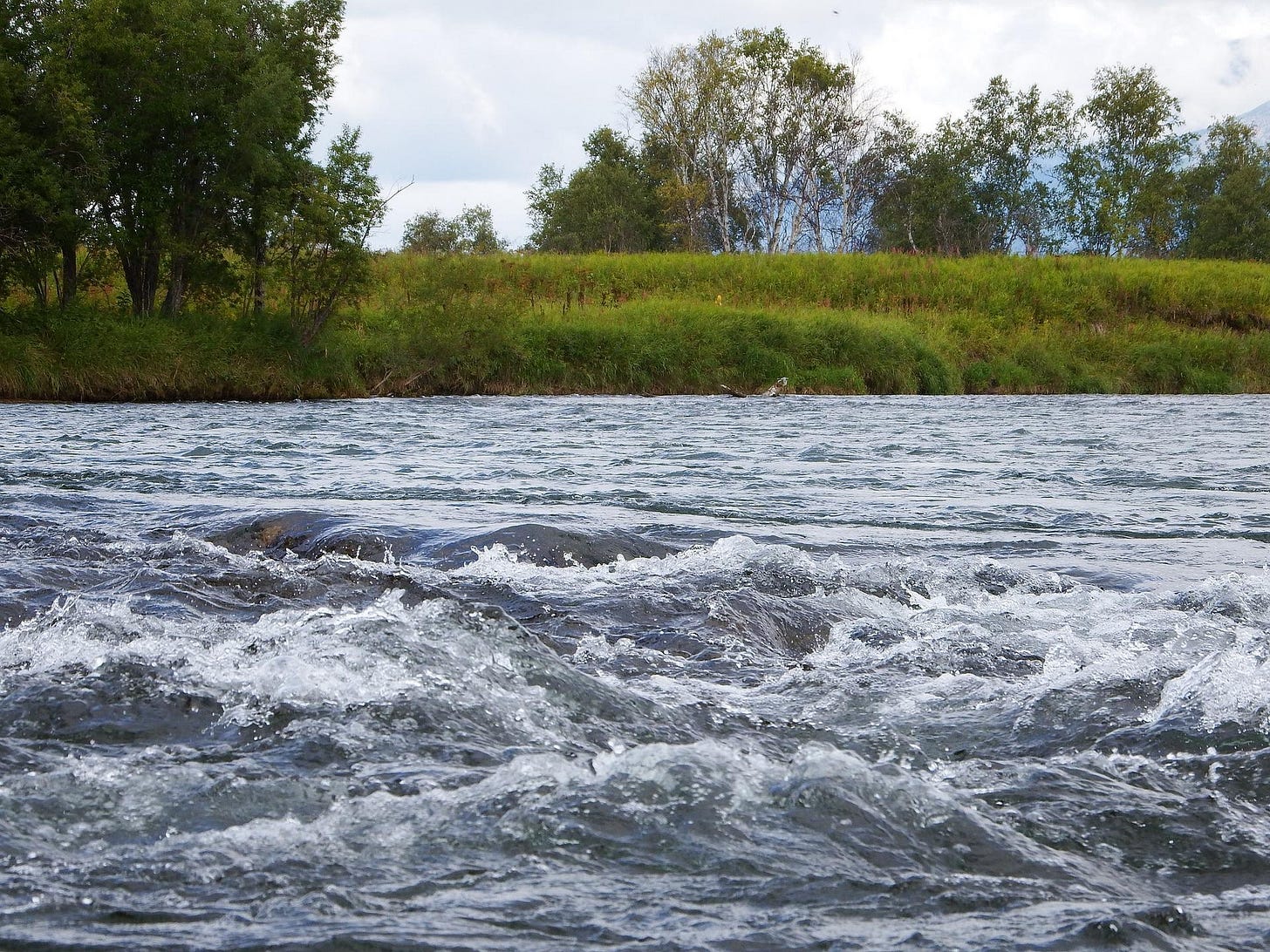Being Tied Down
Short Story Day 160 of 365
Every salmon dipnetting fisherman in Alaska knows that using chest waders won’t protect a fisherman from the ice cold, silty waters of the Chitina River if the waders were to fill up with water by accident. Nothing will. But chest waders do keep them dry on most occasions.
Brandon and Bob were in the same unit in the Army. Bob and his wife Janine took Brandon and a couple other single men under their wings since they were so far from home.
On the six-hour ride to Chitina, Bob and Janine explained to Brandon the whole dipnetting experience.
Bob said, “It’s where a fisherman has a large two-foot wide net at the end of an 8-foot pole. You dip the net into the river with the hopes of finding salmon within a channel of the river. To catch the salmon, you just have to twist the net up once you feel something hit it. You then pull the net out and see what you’ve got.
Bob laughed and said, “That’s the theory at least. When salmon are running in a channel you have your net in, it’s dead simple. When salmon aren’t running, it’s a lot of work to wade into the waters and hold that pole in the water. Poles are not that heavy, but holding it for so long can be. Finding a channel is key.”
Then Janine said, “Brandon, one of the most critical things about dipnetting is tying off to a vehicle on shore. You literally tie a rope around your waist and tie that rope to an axle of your car. That way, if you slip in the rocky bottom of the river, your waders could fill up with water, but you can pull himself safely to shore by the rope. Not tying up is not an option, Brandon. Not…an…option. I can’t stress that strongly enough. You just can’t take the risk because that river is heavy and freezing. We’ve all had bad experiences with not tying off.”
After a short day of dipnetting the day they arrived, Brandon decided to get a head start on the other dipnetters, so he woke at 4 am. There’s plenty of light to go fishing at four o’clock in Alaska in August, and it would be light until midnight.
Being the now-expert dipnetting fisherman that Brandon thought he was, he saw what looked like a channel the salmon could be running in. Pulling up his chest waders, he walked out into the river and set the pole in place.
He took one step downstream and the rock he stepped on gave out under him and he stumbled. As he adjusted to come back upright, he slipped again, this time his entire shoulder was under water and the waders were filling up quickly. The more he tried to balance himself, the heavier his waders had become and the more the water came in. He began to drift downstream, trying desperately to touch solid ground, but struggled.
Brandon was already up to his neck in Chitina River, and his waders were completely full.
A hundred yards downstream, another early rising fisherman saw what was transpiring, mainly because Brandon let out a yelp with each stumble. He waded out ten yards further to be in Brandon’s path to help fish him out. Holding out his pole for Brandon to grab, the fisherman pulled him over to shallow water. After resting a bit on the shore, Brandon thanked the man profusely, took off his waders, and emptied them out. He then took his equipment upstream only to be met by Janine and Bob waiting for him near the vehicle and camp site. They had heard the early morning commotion downstream.
Janine walked up to Brandon, hugged him, and whispered something in his ear for a couple of minutes. Several times his eyes widened and he nodded. No one knows exactly what she said, but he stepped away from her with “Yes, Ma’am” on his lips.
Later, Bob took Brandon aside and said, “Welcome to the family, Brandon. You’ll only get her whispered rebuke one time. I don’t advise there being a second time.”



Lucky day indeed.
It's a wonderful welcome to the family when you get your whispered rebuke, especially when the whisperer has given you life-saving advice concerning a tied-off rope in the first place. Now, don't expect a second one!